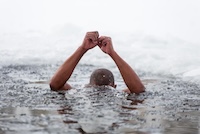Are We Over-Processing Food & Neglecting Health?

By: Dr. Ellen Glickman
November 18, 2024
With Robert F. Kennedy, Jr. likely stepping into the role of Secretary of Health and Human Services, a pivotal question arises: Are we putting too much emphasis on processed foods while neglecting our health?
Kennedy brings nearly 30 years of experience in politics and environmental law to this important position. His focus on “Making America Healthy Again” suggests a shift toward prioritizing public health, which is encouraging news for anyone concerned about the nation's wellness landscape.
As an exercise physiologist with over 30 years of experience, I’ve seen firsthand the challenges Americans face in maintaining a healthy lifestyle. The Centers for Disease Control and Prevention (CDC) report that 40.3% of the U.S. population is classified as obese—a staggering number with serious implications for individuals and communities.
Additionally, the World Health Organization (WHO) estimates that approximately 31% of people in the U.S. don’t meet the minimum standard of 150 minutes of moderate-intensity activity per week. These statistics reflect the toll of an increasingly sedentary and nutrient-poor lifestyle. Acknowledging these challenges is a necessary first “step” in the right direction.
Kennedy’s support for research-driven, data-based solutions to tackle our health crisis holds promise. His focus on the impact of processed foods, chemicals, and additives—combined with an emphasis on public health and chronic disease prevention—could catalyze a much-needed transformation in our health outcomes. The idea of “cracking down” on these unhealthy aspects of our food environment aligns with the scientific findings many of us in health science have long supported.
Americans deserve access to the “right answers”—not just sound bites or short-term fixes. A holistic approach to health should be grounded in data and in peer-reviewed, credible research. Transformative public health policies can make a difference in our daily lives, especially if they focus on nutrition, movement, and preventative health practices.
The prospect of moving toward greater transparency and science-based policies for nutrition and health is exciting. Let’s hope that with the right support, we can steer the nation towards healthier living—both through individual choices and policy changes that promote well-being for all.
Take the Plunge! Exploring the Science Behind Cold Water Immersion

By: Dr. Ellen Glickman
November 12, 2024
As Thanksgiving approaches, many people look forward to holiday traditions, like the classic "Turkey Trot" run or the bold “Polar Bear” plunge into chilly waters. For some, this cold-water dip is invigorating—but is it beneficial?
As an environmental physiologist with more than 34 years of experience studying cold-water immersion, I find this tradition fascinating from physiological, psychological, and metabolic perspectives. However, this is hardly a “one size fits all” activity, and certain individuals, like those with Raynaud's syndrome, sickle cell anemia, or high blood pressure, should check with a medical provider prior to considering these activities.
Cold water immersion (CWI) is a hot topic (pun intended), particularly in sports science. Emerging research suggests it can aid muscle recovery after intense exercise, potentially clearing markers of muscle damage, like creatine kinase, and helping athletes feel recovered more quickly. Studies are showing CWI is effective for high-intensity exercise recovery, which is why we see professional athletes and college teams using cryotherapy and ice baths.
So, why not jump in?
Some evidence suggests that cold water immersion may also boost mood and contribute to healthy aging. By promoting endorphin release and increasing energy expenditure (through shivering thermogenesis), CWI might offer mental and physical benefits that go beyond the immediate chill.
Even on a daily level, a cold shower can have measurable effects. In certain cases, cold exposure activates receptors in the skin that send electrical impulses to the brain, possibly resulting in an anti-depressive effect (Shevchuk, Med Hypotheses, 2008). Though more research is needed, it’s intriguing to consider how cold therapy could support mental well-being.
My lab investigated this question back in 1991, studying how individuals with low (8-12%) versus high (18-22%) body fat sustained cold-water immersion for 90 minutes at varying temperatures. Interestingly, those with lower body fat shivered more to maintain their core temperature and felt the cold more intensely. However, both groups showed elevated mood and beta-endorphin levels, suggesting that CWI can offer a similar "high" across the board (Glickman-Weiss et al., Aviation, Space, and Environmental Medicine, 1991).
Cold water immersion and cryotherapy can be accessible, simple recovery methods that may improve muscle recovery and reduce soreness. Whether it’s an ice bath after a run or a quick dip in a chilly lake, many of us can explore CWI’s potential benefits with minimal equipment. As a bonus, the invigorating sensation could boost your energy and elevate your mood—a refreshing change from the ordinary!
So, as you consider your post “Turkey Trot” recovery, cooling off after an intense conversation with the in-laws, or even taking on a charity polar plunge, remember there is science behind that surge of exhilaration.
Check with your doctor and see about embracing the "GOOD COLD DAYS" and see if a little icy immersion could add a fresh twist to your holiday traditions.